Regulation of GFR: autoregulation via tubuloglomerular feedback, neural & hormonal regulation
By: HWC
Date Uploaded: 11/04/2019
Tags: homeworkclinic.com Homework Clinic HWC Regulation of GFR autoregulation via tubuloglomerular feedback rapid filtrate flow vasoconstricting chemicals juxtaglomerular cells macula densa cells afferent arteriole glomerular capillaries afferent arteriole vasodilates neural regulation renal autoregulation angiotensin II potent vasoconstrictor hormonal regulation arterioles collapse angiotensin H mesangial cells
• When blood pressure is above normal, rapid filtrate flow reduces ion retention so filtrate in tubule has more Na+, C1-, and water. • It is believed that vasoconstricting chemicals from the juxtaglomerular cells are released when the macula densa cells detect higher water and ion levels in the tubule. • These chemicals cause vasoconstriction of the afferent arteriole, thereby reducing blood flow to the glomerular capillaries. • GFR decreases. • Slow filtrate flow increases ion retention so filtrate in the tubule has less Na+, Cl-, and water. • Macula densa cells detect lower water and ion levels in the tubules, inhibiting the release of vasoconstricting chemicals from the juxtaglomerular cells. • The afferent arteriole vasodilates, increasing blood flow to the glomerular capillaries. • GFR increases. • At rest, sympathetic stimulation is weak and renal autoregulation is the dominant mechanism for controlling GFR. • Sympathetic stimulation is most important during extreme rises or falls in blood pressure. • In the case of an extreme drop in blood pressure, sympathetic output increases. • The afferent arterioles vasoconstrict. • The juxtaglomerular cells secrete renin, a chemical that promotes formation of angiotensin II, a potent vasoconstrictor. • The net result of increased sympathetic stimulation is a reduction of blood flow to the glomerular capillaries - a decrease of GFR. • This mechanism eventually reduces urine output, conserving water. • If both blood volume and pressure drop, the walls of the renal arterioles collapse. This causes the juxtaglomerular cells to produce renin. • Renin promotes the formation of angiotensin H. • Increased angiotensin II promotes vasoconstriction of afferent arterioles, reducing blood flow to the glomerular capillaries. • GFR decreases. • A sudden large increase in blood pressure will cause the atria of the heart to stretch. • ANP is released into the bloodstream. • ANP causes the mesangial cells of the glomerulus to relax, increasing the surface area of the capillaries. • Increased filtering area increases OFR.
Add To
You must login to add videos to your playlists.
Advertisement



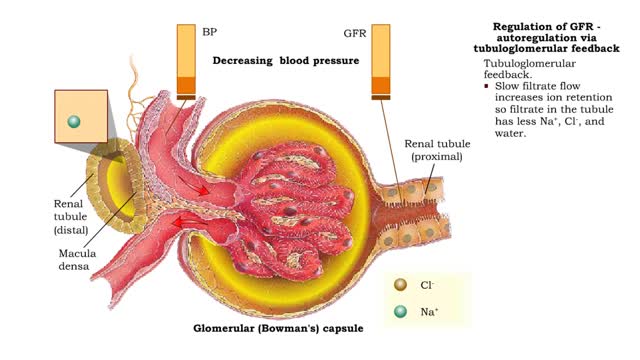
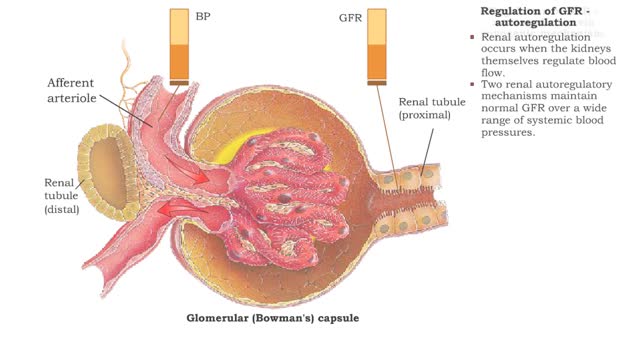
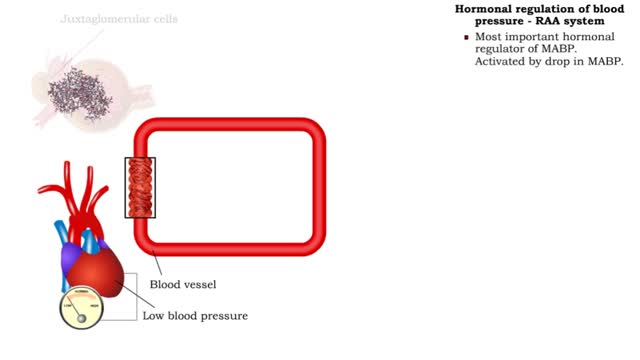
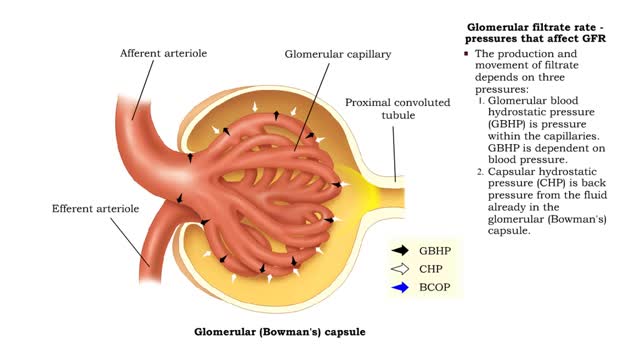
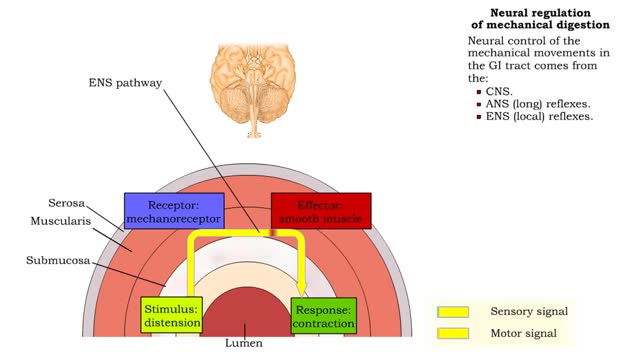
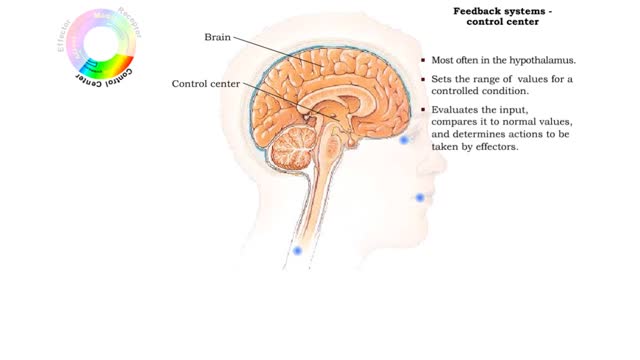
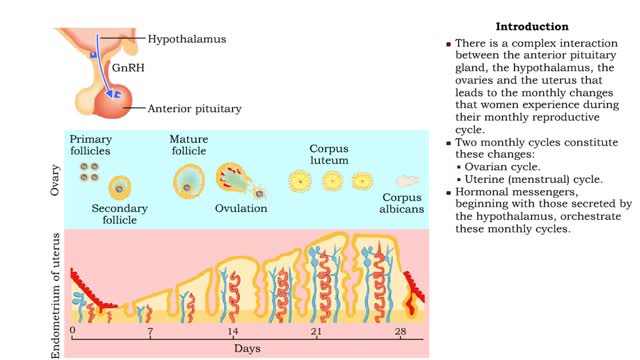
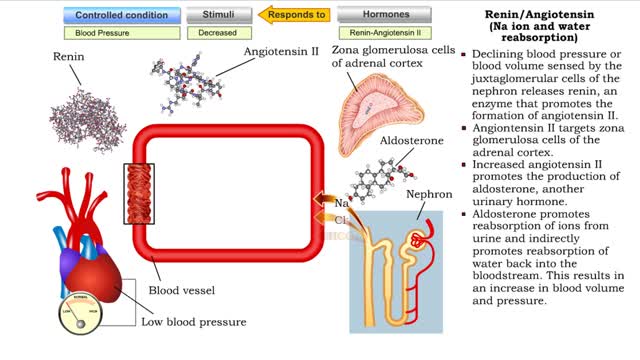
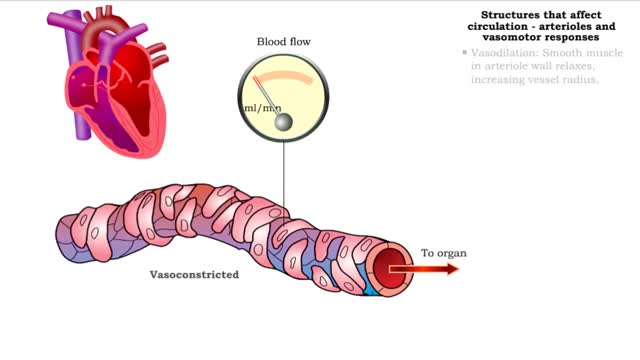
Comments
0 Comments total
Sign In to post comments.
No comments have been posted for this video yet.